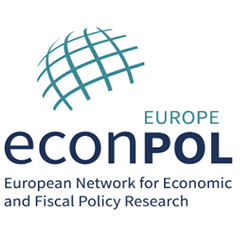Key priority of German and Finnish public procurement officials is to avoid awarding public contracts to bidders with bad reputation. Yet, their ability to do so may be limited. Officials also dislike procurement outcomes that exceed expected costs or fall short of expected quality, a recent EconPol study finds. “Exceeding the budget in the administration is perceived to be much worse than falling short. This can be explained for example by budget overruns often being criticized in public, e.g. by the media or politicians, but cost saving not getting attention,” explains EconPol researcher Janne Tukiainen, one of the authors of the study.
“Decision-makers in public administrations say they have considerable discretion in their work, but how the decisions are made, however, is largely considered a black box. We have identified how procurement officials value various attributes of procurement outcomes,” says Sebastian Blesse, co-author of the study.
Decision-makers also value a certain degree of competition. This result suggests that the preferences of procurement officials are not the key factor behind the lack of competition often observed in public procurement in the EU. The risk of becoming involved in legal disputes or the preference for regionally based bidders turned out to be less important.
“Contracting authorities see (overly) rigid regulation as the biggest threat to good outcomes in the procurement process because it inhibits the optimal exercise of their discretion. For example, EU regulation limits the ability of procurement officials to rule out bidders with bad reputation,” explains Tukiainen.
The results are based on survey experiments which examine the relative importance of several characteristics of hypothetical tender outcome scenarios. More than 900 officials responsible for procurement in public administration in Finland and Germany took part. The study was conducted in collaboration with Aalto University, the Finnish Competition and Consumer Authority, the University of Turku, VATT Institute for Economic Research and the ZEW Mannheim.
Read the full Working Paper: “What Are the Priorities of Bureaucrats? Evidence from Conjoint Experiments with Procurement Officials”, by Janne Tukiainen, Sebastian Blesse, Albrecht Bohne, Leonardo M. Giuffrida, Jan Jäässkeläinen, Ari Luukinen, and Antti Sieppi, EconPol Working Paper 63, March 2021.
https://www.econpol.eu/publications/working_paper_63
www.econpol.eu
About EconPol Europe



























